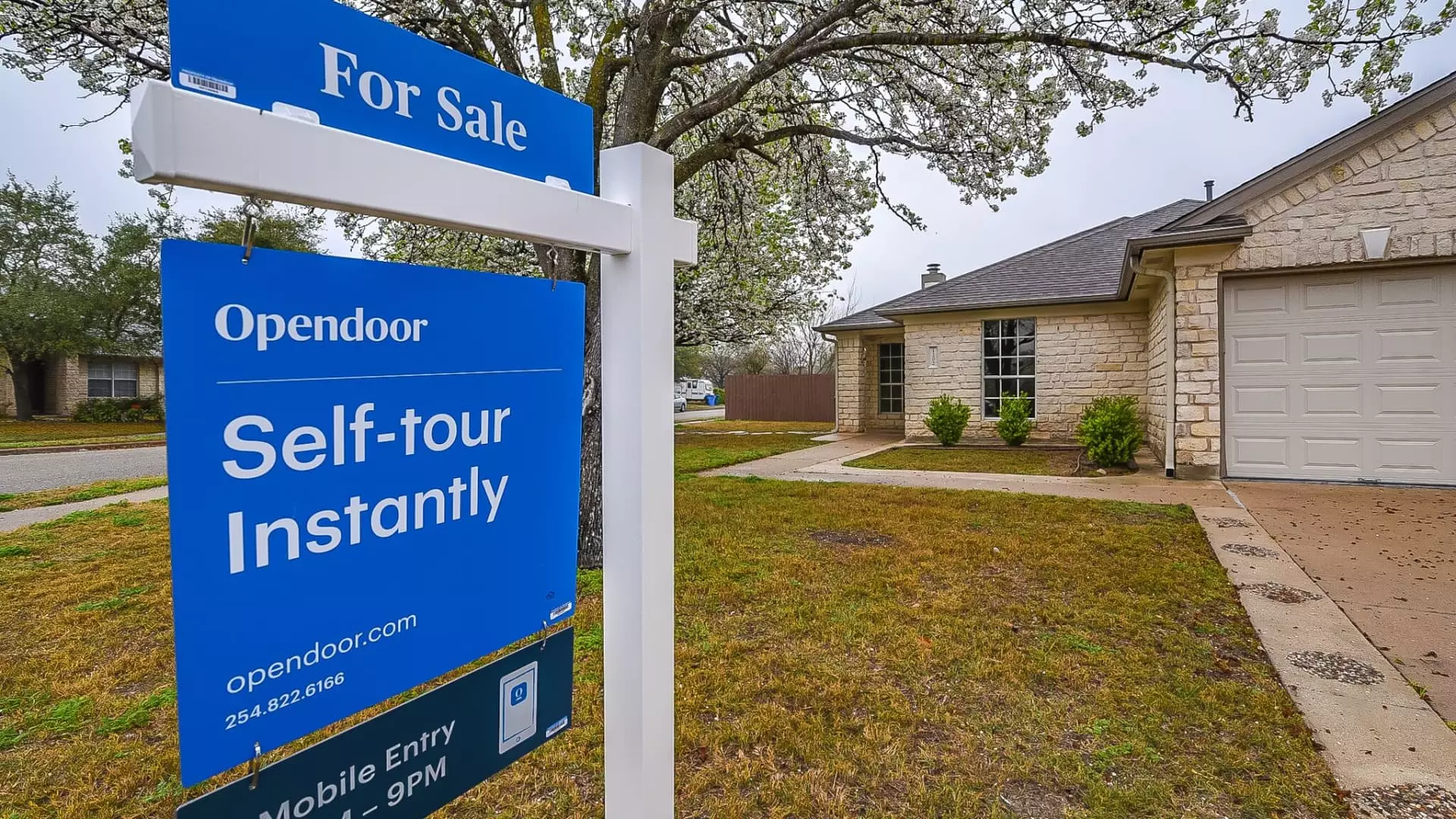In the recent months, Opendoor’s dramatic stock rebound has captured the attention of many investors and market observers. The company’s shares surged nearly fivefold since July, igniting hopes that it might be on an accelerated recovery path. Such a meteoric rise, fueled by high-profile hedge fund backing, suggests that investors are desperately clinging to the idea of a turnaround in the company’s fortunes. However, beneath this veneer of enthusiasm lies a fragile foundation of genuine financial stability. The rally appears more like a speculative bubble driven by optimistic sentiment rather than concrete operational improvements. The recent record trading volumes highlight this surge’s volatility and speculative nature, emphasizing that this isn’t a sustainable comeback but a fleeting market phenomenon with severe risks of a subsequent sharp correction.
The Reality Behind the Numbers: Struggling in a Changing Market
Opendoor’s core business model revolves around leveraging technology to facilitate real estate transactions — buying and selling homes in a streamlined, data-driven manner. Post-2020, as the pandemic accelerated the housing market boom, Opendoor capitalized on the surge. Yet, when interest rates began climbing in 2022, the company’s revenue plummeted from $15.6 billion to just over $5 billion last year. This stark decline exposes the fragility of a model overly reliant on a booming housing market. The recent financial report, with barely a 4% revenue increase, reveals little to no real progress toward sustainable growth. The company’s minor narrowing of losses does little to hide the larger reality: the housing slowdown remains a formidable obstacle, with mortgage rates crushing buyer demand and delaying recovery.
The Illusion of a Tech-Driven Comeback
While Opendoor’s CEO Carrie Wheeler emphasizes a strategic pivot into a less capital-intensive, referral-based model, this shift hardly addresses the underlying issues. The move is presented as the “most important strategic shift” in the company’s history, yet it appears more like a cosmetic change than fundamental reform. Is this enough to revive investor confidence? Not really. The housing market’s persistent malaise, marked by record-low transaction volume and a dwindling number of homes being bought and sold, suggests that external market conditions remain against Opendoor. The company’s decision to reduce marketing spending also signifies damage control rather than growth ambition. It’s evident that the company is attempting to adapt to a harsh reality, but whether these strategic nuances will translate into meaningful financial health remains highly doubtful.
The Illusion of Hope: Is There a Real Recovery on the Horizon?
The recent rally driven by hedge fund endorsement and optimistic projections from speculators masks the fundamental problems. Jackson’s bold prediction that Opendoor’s stock could someday reach $82 sounds more like wishful thinking than a cautious forecast rooted in solid fundamentals. The company’s outlook for the upcoming quarter is bleak, projecting a sharp decline in revenue and fewer property acquisitions. Even with a narrowed net loss, the company’s actual profitability remains distant. The aggressive shift toward referrals, while possibly reducing costs, doesn’t guarantee future revenue growth. It appears that the market’s current optimism neglects the fact that the housing sector’s headwinds—interest rate hikes, affordability issues, and declining demand—are structural rather than cyclical. The risk of a further downturn looms large, especially if macroeconomic conditions deteriorate further.
The Reality Check: Do Investors Understand What They’re Betting On?
The current enthusiasm for Opendoor’s stock reflects a broader sentiment of impatience and hope among certain investors, desperately searching for the next tech-enabled home run. Yet, in the grand scheme, this enthusiasm forsakes a sober assessment of the company’s actual health. The company’s losses are significant, its revenue growth inconsistent, and its strategic repositioning unproven. Markets often reward momentum, but without real operational improvements, these gains are ultimately fragile. The case for Opendoor’s future hinges on a dramatic turnaround that hinges on external factors—the housing market, macroeconomic stability, and consumer demand—not internal corporate strategies. For now, this story is more about speculative capital chasing ghosts of past glories than a genuine, sustainable revival. Investors should steel themselves for the possibility that this window of optimism might shutter as swiftly as it opened.

